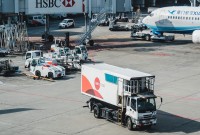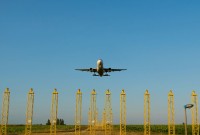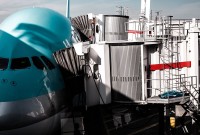- Home
- Business Processes
- Industry Knowledge
- Aerospace Industry
- Automotive Industry
- Banking Domain
- BFSI Industry
- Consumer/ FMCG Industry
- Chemicals Industry
- Engineering & Construction
- Energy Industry
- Education Domain
- Finance Domain
- Hospitality Domain
- Healthcare Industry
- Insurance Domain
- Retail Industry
- Travel and Tourism Domain
- Telecom Industry
- Leadership Skills
- eLearning
- Home
- Domain Knowledge
- Aerospace Industry
- Military & Defense Aerospace Sector – Sector Profile
Military & Defense Aerospace Sector – Sector Profile
In this article, we will discuss the important sub-sectors of the Military & Defense Aerospace Sector namely military aircraft manufacturing and military avionics, maintenance, repair, and overhaul (MRO), missiles, C4ISR, and related services and modeling, simulation, and training.
The military and defense aerospace sector are made up of five subsectors:
- Military aircraft manufacturing and military avionics
- Maintenance, repair, and overhaul (MRO)
- Space Vehicle and Missiles Manufacturing
- C4ISR and related services
- Modeling, simulation, and training
Military Aircraft Manufacturing:
This subsector is responsible for producing military aircraft and military aircraft engines and engine parts. This industry includes businesses that perform one or more of the following:
- Manufacturing complete aircraft
- Missiles or space vehicles
- Manufacturing aerospace engines
- Propulsion units
- Auxiliary equipment or parts
- Developing and making prototypes of aerospace products
- Aircraft conversion (i.e., major modifications to systems)
- Complete aircraft or propulsion systems overhaul and rebuilding
Industry Products:
- Aircraft
- Aircraft engines and engine parts
- Other parts and auxiliary equipment
- Guided missiles and space vehicles
Industry Activities:
- Manufacturing military aircraft, missiles, and space vehicles
- Manufacturing military aerospace engines, propulsion units, auxiliary equipment or parts
- Developing and making military prototypes
- Military aircraft conversion
- Military complete aircraft or propulsion system overhaul and rebuilding
- Manufacturing military space launch vehicles
Industry Analysis & Industry Trends:
The Global Military Aerospace Products Manufacturing industry is expected to generate $154.2 billion in revenue during 2011. Factors that contributed to the growth for military aerospace equipment include the Iraq War, the war on terrorism, and homeland security. Over the five years through 2016, advancements in technology such as fifth-generation jet fighters and unmanned aerial vehicles (UAV) will be the new drivers for the industry.
Space Vehicle & Missile Manufacturing Industry:
The Space Vehicle and Missile Manufacturing industry consists of businesses involved in the manufacture of guided missiles and space vehicles, including the development of prototypes and the manufacture and development of parts, propulsion units, and support equipment used in guided missiles and space vehicles.
Industry Products:
- Complete guided missiles
- Complete space vehicles
- Space vehicle propulsion units and parts
- Other guided missiles and space vehicle parts
Industry Activities:
- Developing and producing prototypes for complete guided missiles and space vehicles
- Guided-missile and space vehicle
- Developing and producing prototypes for guided missile and space vehicle engines
- Guided-missile and space vehicle engine
- Manufacturing propulsion units and parts for guided missile and space vehicles
- Airframe assemblies for guided missiles
- Developing and producing prototypes for guided missile and space vehicle components
- Guided-missile and space vehicle parts
- Space capsule
Industry Analysis & Industry Trends:
The Space Vehicle and Missile Manufacturing industry is highly specialized, prone to rapid technological change, and heavily influenced by the US government. Other key drivers for the industry over the five years to 2012 have included the wars in Iraq and Afghanistan and the performance of world GDP. Heavy US military activity in Iraq and Afghanistan during the period supported the demand for guided missiles.
Suggested Reading and Resources
Related Links
You May Also Like
-
Civil Aerospace: Commercial Avionics Industry
Commercial avionics refers to cockpit electronics and airborne equipment, although it doesn't include antennas, recorders, or other passenger-only cabin systems. Avionics is referred to denote the electronic systems that are utilized in aircraft.
-
Aerospace Industry: The Business Model
In this article, we will discuss the value chain of the Aerospace Industry and will define the generic business model to understand the key process areas in the aerospace industry. This will provide you with a basic understanding of key activities in the industry.
-
Civil Aviation Sector – A brief History
The civil aviation sector has transformed itself during the last hundred years. There has been massive technological development in passenger traffic and comfort and now the civil aviation industry accounts for approximately 30% of the overall aerospace industry. A brief account of civil aviation history is presented in this article.
-
Civil Aerospace Sector - Sector Profile
In this article, we will discuss the four important sub-sectors of the Civil Aerospace Sector namely “Civil Aircraft Manufacturing”, “Commercial Avionics”, “MRO” and “Commercial Simulation & Training”.
-
Aerospace Industry - The Competitive Landscape
This article provides an overview of the competitive landscape of the aerospace industry. Read how the compaction is shaped up across the US and the globe, followed by a detailed discussion of the top 5 players in the sector in terms of revenue.
-
Civil Aerospace: Maintenance, Repair & Overhaul (MRO)
This subsector under the civil aerospace industry includes the maintenance, repair, and overhaul (Known as MRO) of civil aircraft and aircraft components. This includes line and heavy maintenance of civil aircraft, as well as repair and overhaul of all parts of an aircraft, including engines, electronic components, and avionics, instruments, and aircraft structures.
-
Key Sectors of Aerospace and Defense Industry
Understand the categorization of the aerospace industry to various sectors based on the services it currently provides. Understand the key constituents under these sectors and activities under each of these sectors.
-
An overview of the Aerospace Industry. A brief account of how modern aerospace began way back with Sir George Cayley in 1799 and the success story of the Wright Brothers to today's massive international airspace developments.
-
Civil Aerospace - Commercial Simulation and Training
Training people how to operate and maintain today’s sophisticated aircraft as well as on-board and ground support systems can be very complex and costly. To be effective, the training environment must accurately simulate the features and capabilities of the actual systems in a wide range of operating scenarios. Commercial modeling, visual simulation, flight simulation, and computer-based training are the key methods used by this subsector.
-
Military & Defense Aerospace Sector – Sector Profile
In this article, we will discuss the important sub-sectors of the Military & Defense Aerospace Sector namely military aircraft manufacturing and military avionics, maintenance, repair, and overhaul (MRO), missiles, C4ISR, and related services and modeling, simulation, and training.
Explore Our Free Training Articles or
Sign Up to Start With Our eLearning Courses

About Us
Learning
© 2023 TechnoFunc, All Rights Reserved









